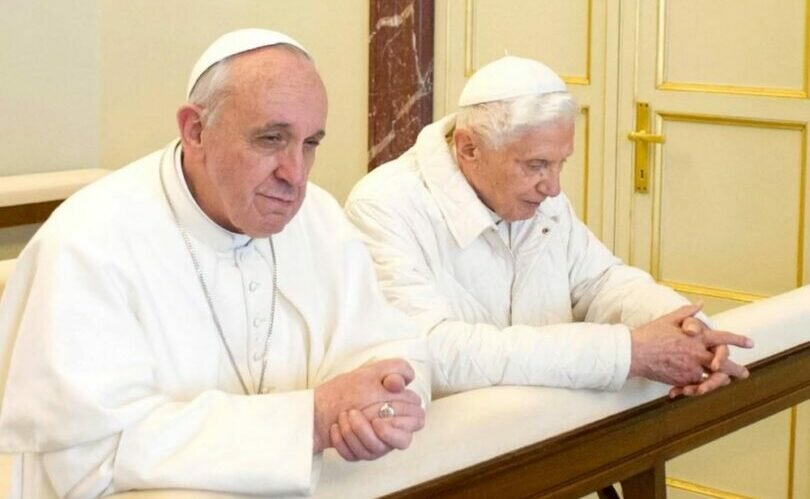SWITZERLAND, August 31, 2018 (LifeSiteNews) – One of the most prominent German-speaking daily newspapers in Switzerland is calling upon Pope Francis and Pope Emeritus Benedict XVI to come out with some clarifications concerning the Viganò report. About Pope Francis, the journalist asks: “Why does he not simply issue a denial?”
Michael Meier, writing for the national newspaper Tages-Anzeiger from Zurich, Switzerland, reports in an August 30 article on the Viganò claim that Pope Francis had been informed about the McCarrick scandal but still made the predatory prelate one of his counselors. Commenting on the many objections raised against Viganò himself, especially on the “thesis of a plot” of the “right-wing camp which is critical of Francis,” Meier states, “that is quite possible, yes plausible. But even if the thesis of a plot is true, it does not refute Viganò's accusations.”
“One can only agree with the columnist Matthew Schmitz at the New York Times,” he adds, “that Pope Francis would have to resign, should the accusations be true.”
Using his common sense, this journalist notes, “the silence of the two popes seems strange.” With regard to Pope Francis’ own silence, the journalist has a logical question to ask: “Why does he not simply issue a denial? He would not hurt anyone with it, except Viganò.” Quoting Archbishop Georg Gänswein's announcement that Pope Benedict XVI will not speak about the Viganò report, Meier also asks: “Why is the ex-Pope silent when he would be in the position to exonerate his successor?”
The Swiss journalist refers back to Josh Shapiro, attorney general of Pennsylvania, who recently claimed that the Vatican had been informed about the clerical sex abuse cases in that state: “Whether Francis himself also knew, he (Shapiro) could not tell.”
For Meier, it is “quite possible that Francis, in spite of all accusations, cherished and promoted McCarrick who was known for his engagement for the poor.”
“It is known,” Meier adds, “that Francis does not like to be talked into his personnel decisions. If he likes someone, he stands also by the black sheep.” Francis trusts here “the Holy Spirit, that is to say his gut feeling.” Thus, “reflexion is being missed out,” Meier concludes.
At the end of this reflective article, the Swiss journalist joins Cardinal Daniel DiNardo’s call for “logical and evidence-based answers.” With regard to DiNardo's request for an all-encompassing investigation of the accusations and an audience with the Pope, Meier states: “He (DiNardo) now has to remind him (Pope Francis) of his own words: ‘covering-up was yesterday. Now transparency is demanded.’”

